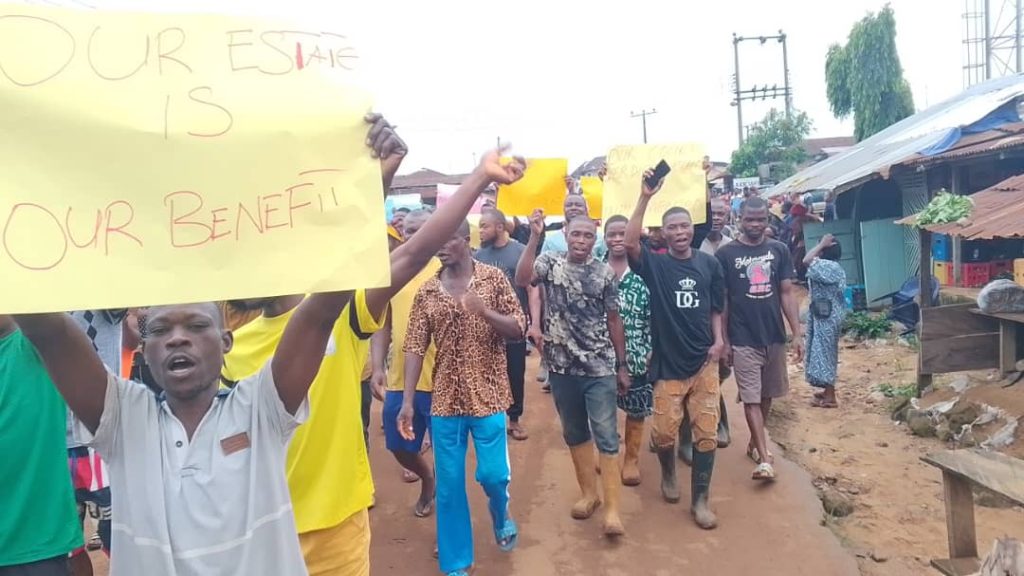The serene landscapes of Cross River State, Nigeria, are currently witnessing a surge of unrest as communities, particularly in the Etung Local Government Area, rise in peaceful protest against the state government’s proposed privatization of cocoa estates. The demonstrations, ignited in Etomi community, have rapidly spread throughout the region, uniting residents in a collective outcry against a policy perceived as a direct threat to their livelihoods and survival. The cocoa estates, deeply intertwined with the local economy and social fabric, represent more than just agricultural land; they are the cornerstone of existence for many, providing sustenance, employment, and a fragile sense of stability in a region grappling with significant developmental challenges.
The protests underscore a profound sense of betrayal and abandonment felt by the communities towards the government. Residents articulate a long history of unfulfilled promises and neglected infrastructure. They point to the absence of basic amenities such as accessible roads, electricity, clean water, and communication networks, highlighting the stark contrast between the government’s rhetoric of development and the harsh realities of their daily lives. In this context, the proposed privatization of the cocoa estates is not merely an economic policy; it is a symbol of the government’s perceived indifference to their plight, a final straw that has pushed communities to the brink of collective action.
The voices of the protesters resonate with a powerful blend of desperation and determination. Community leaders, representing various segments of society, have stepped forward to articulate their concerns and implore the government to reconsider its decision. Comrade Egbuta Amba, Chairman of the Cocoa Association of Nigeria’s Abia unit, emphasizes the critical role of cocoa farming in the local economy, stressing that it is the sole source of livelihood for many. He paints a picture of a forgotten region, devoid of basic infrastructure and opportunities, where cocoa cultivation provides a lifeline against the tides of poverty and despair.
The women of the affected communities add their voices to the chorus of dissent, highlighting the devastating impact privatization would have on their families and the wider social fabric. Beatrice Tawo, the Women Leader of the Abia community, condemns the government’s move, arguing that it would strip them of their last means of survival. She underscores the irony of the situation, pointing to the government’s repeated failure to deliver on promises of basic services, while simultaneously seeking to wrest control of the very resource that sustains their communities. Her words reflect a deep sense of injustice and a growing frustration with the government’s apparent disregard for their well-being.
The youth, representing the future of these communities, echo the concerns of their elders, expressing their anxieties about the uncertain prospects that lie ahead. Lawrence Ntui, the Youth Leader of the Abia community, articulates a sense of marginalization and neglect, emphasizing the lack of government presence and investment in their region. He points to cocoa farming as a source of meaningful engagement and a bulwark against crime and despair, emphasizing the devastating consequences that privatization would unleash upon the younger generation. His words underscore the urgency of the situation and the need for immediate action to prevent a social and economic crisis.
The ongoing protests in Cross River State reflect a broader struggle playing out across many parts of Nigeria, where communities are increasingly asserting their rights and demanding accountability from their government. The fight over the cocoa estates is not just a local issue; it represents a microcosm of the larger challenges facing the nation, including the equitable distribution of resources, the provision of basic services, and the need for inclusive and sustainable development. The outcome of this struggle will have far-reaching implications, not only for the communities directly affected but also for the future of democratic governance and social justice in Nigeria. The government’s response to these protests will be a crucial test of its commitment to listening to the voices of its people and addressing the root causes of their grievances. The world is watching, and the hope remains that a peaceful resolution can be found that respects the rights and livelihoods of the communities at the heart of this struggle.


